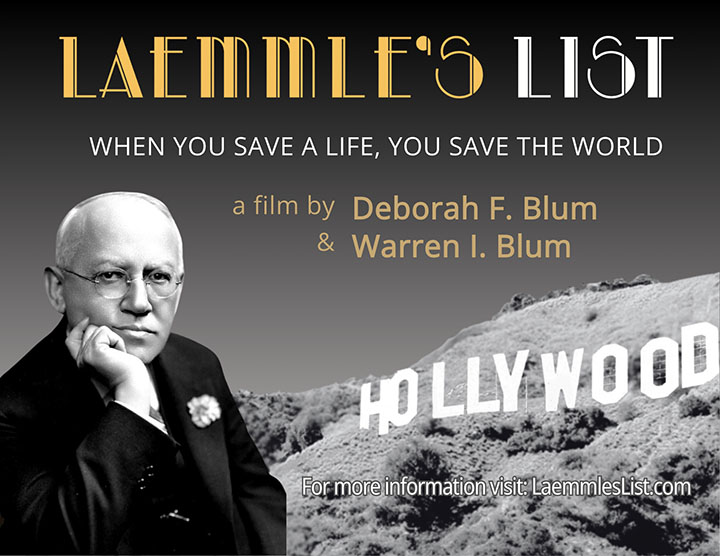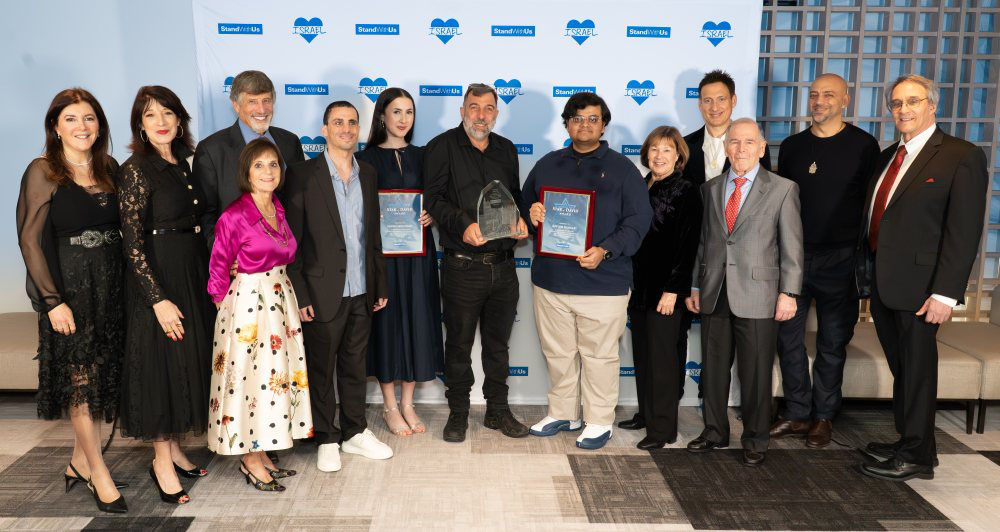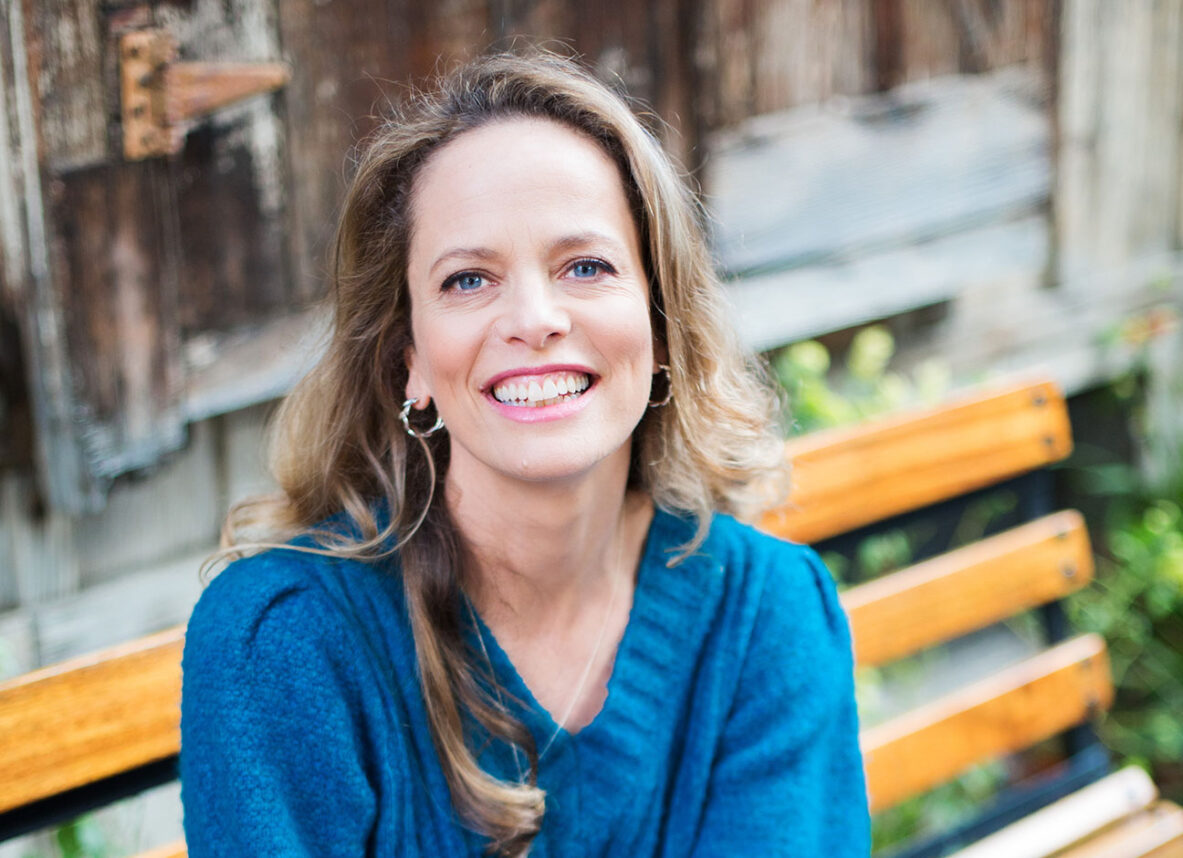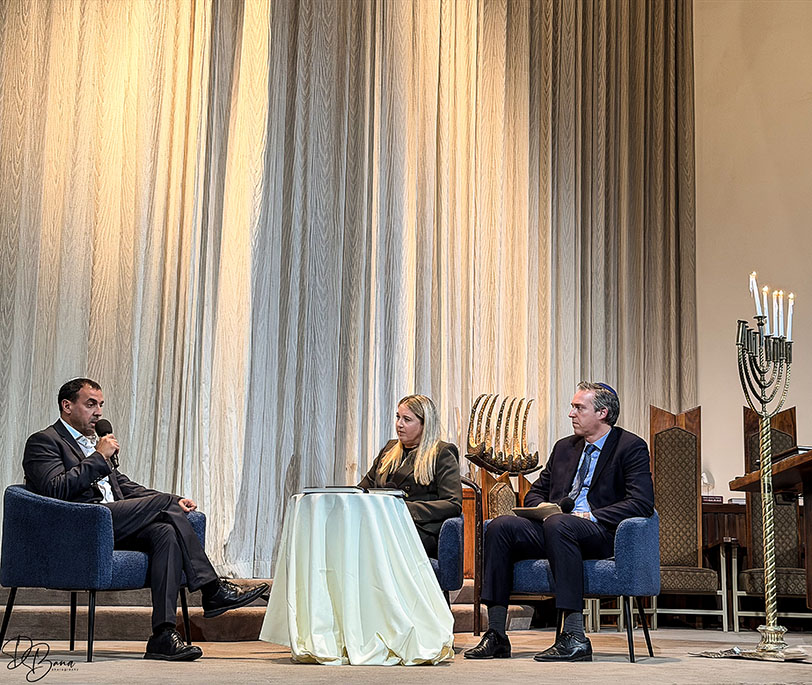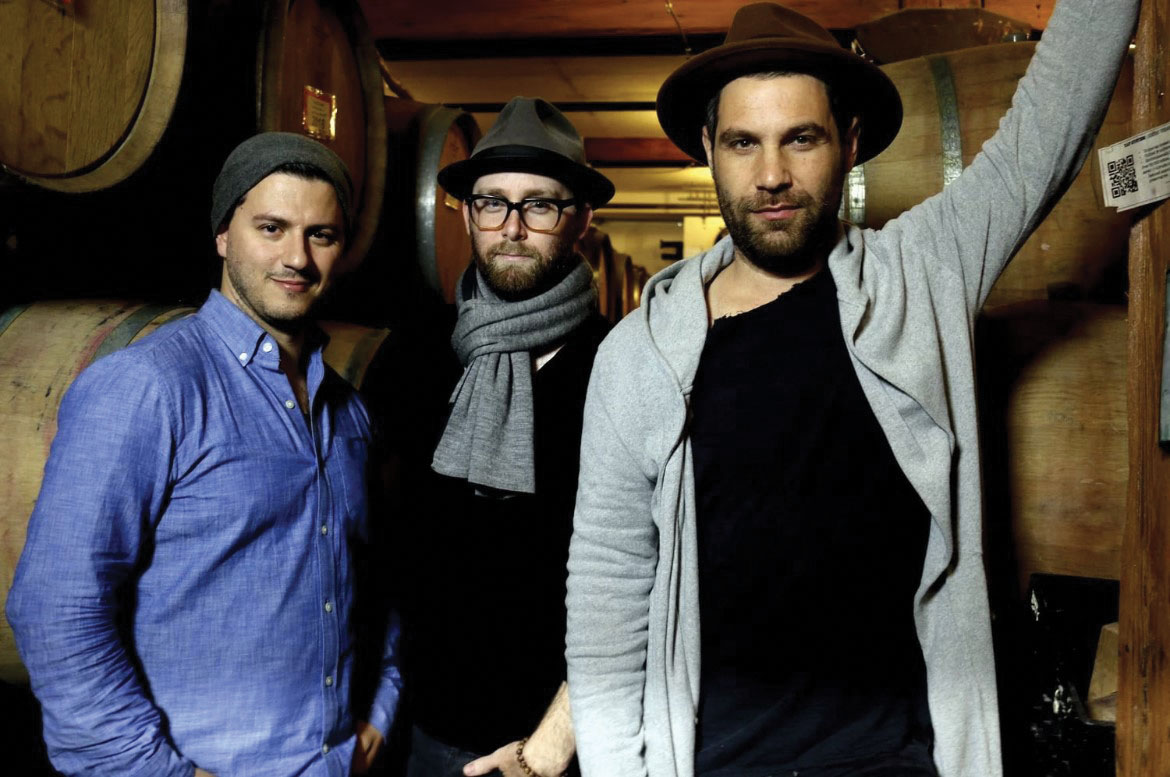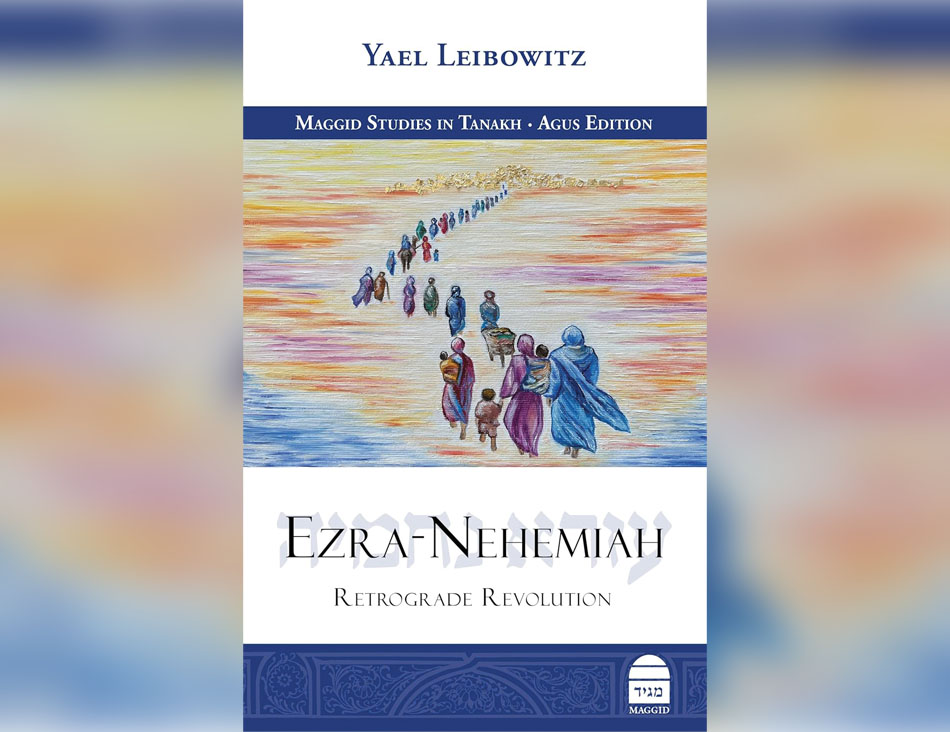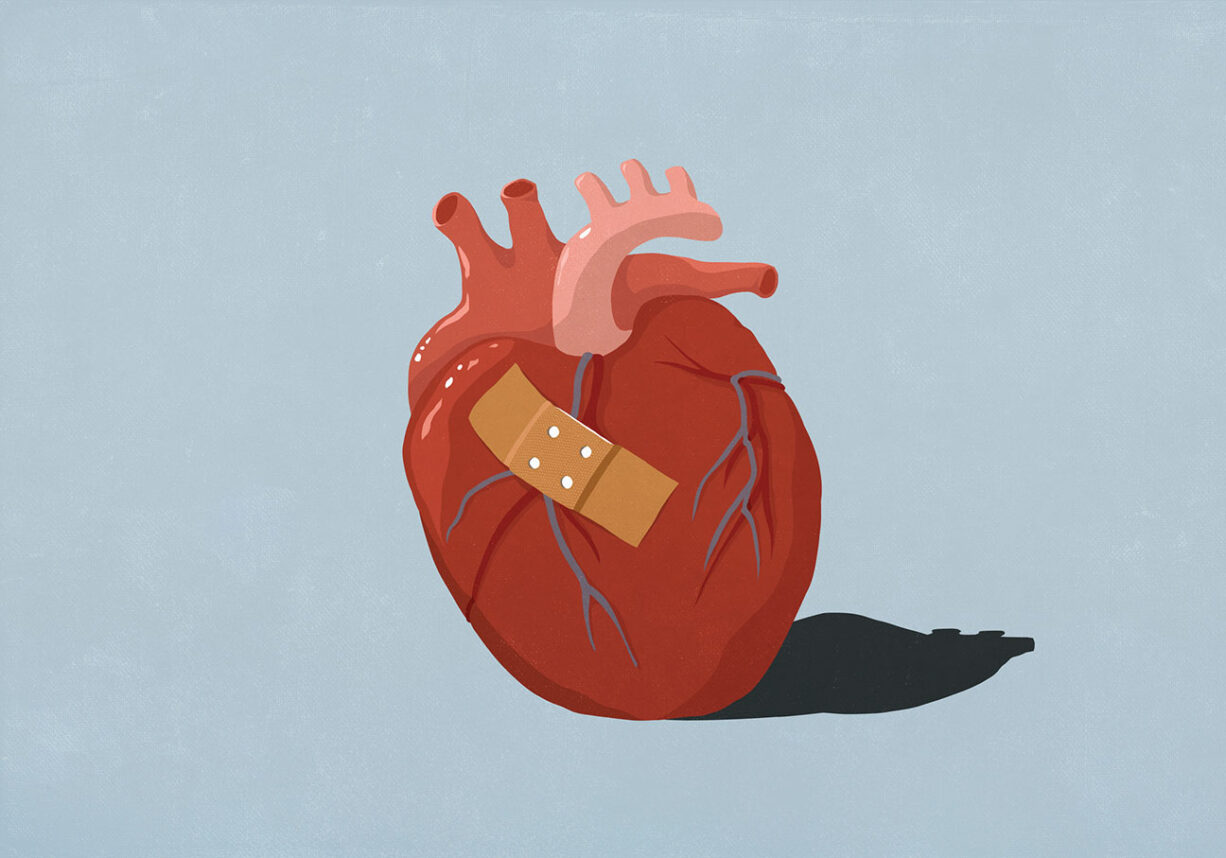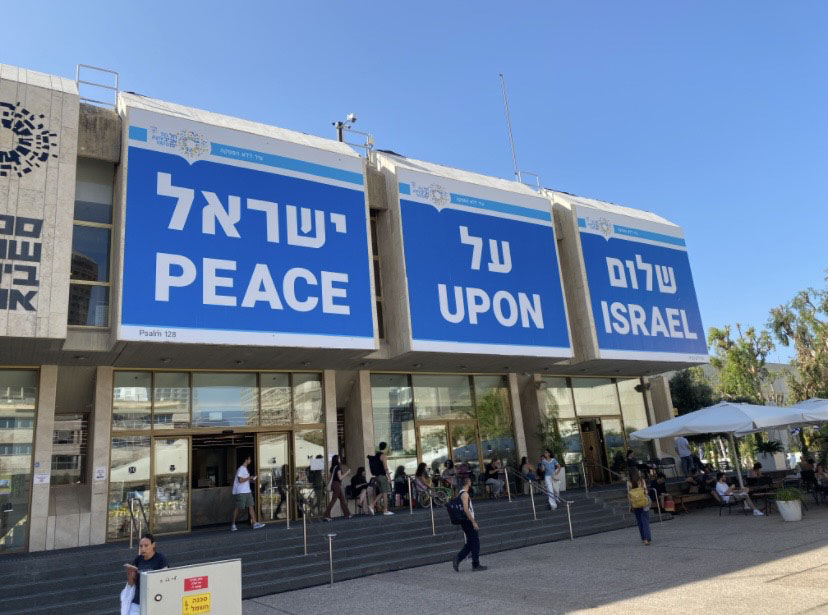While visiting Israel with The Jewish Federation’s Real Estate and Construction Division last November, Bryan Berkett snuck away from the group to check on a little project he had going.
At a cafe in Jaffa, Berkett, 28, arranged a meeting with two impoverished Israeli women, both on welfare. One of the women, an Arab Israeli wearing a Muslim hijab, had her arm around the other, an Israeli Jew. And both of the women were crying.
Berkett, who earned his MBA from UCLA’s Anderson School of Management and recently started his own company, BT Real Estate Group, is determined to use his business skills to help those Israeli women become self-sufficient.
Through a partnership with the Koret Israel Economic Development Funds (KIEDF), Berkett founded a job creation program that provides business training and microloans to Arab and Jewish women living in Israel. The goal, he says, is to help Israel — plain and simple. And by helping these women develop financial self-sufficiency, they can, in turn, contribute to the Israeli economy. And their children — there are 10 between them — can get off the streets and go to school. Otherwise, he asks, “What are these kids doing in poor neighborhoods? They’re sitting around, getting angry and causing trouble.”
And when Arab and Jewish women sit side-by-side learning, there’s an added benefit: the potential for a relationship.
“[These women] don’t want to sit around and talk about peace,” Berkett said. “They want to figure out how they can feed their families.”
This initiative isn’t Berkett’s first foray into Middle East development. In 2001, while an undergraduate at Columbia University, he partnered with Palestinian MBA student, Hisham Jabi and Uri Pomerantz, an Israeli student at Stanford — both of whom had lost loved ones to the conflict — and founded Shurush, a nonprofit microlending program that provided low-interest loans to Palestinians living in the West Bank and Gaza. Their business plan won national recognition when they became finalists in the Goldman Sachs Social Venture Competition, but ultimately fell apart during the Second Intifada.
Shurush now provides funding for the business-training program. Despite Berkett’s good intentions, there are some who challenge him for his willingness to help Arab Israelis and Palestinians. To them, he says, “You can never ignore suffering. You can never turn your back on it. It doesn’t mean you have to say ‘Palestinians are victims’; it doesn’t mean that you have to say ‘Israelis are wrong’; but you have to say ‘Here are people who are suffering, and it’s sad.’”
Berkett’s drive to improve the quality of life in Israel is deeply rooted in his family history. Although he grew up the child of a wealthy family in Beverly Hills, his grandparents, Ted and Hedy Orden, survived the Holocaust and escaped communist Europe before their stateside success. Their dream was a secure Jewish homeland. (Berkett was so moved by their story after traveling to their township in Romania, he published a book on their life together and persuaded his synagogue, Sinai Temple, to rescue a Torah from their childhood shul.)
“At my age, my grandmother had survived Auschwitz and my grandfather survived communist Romania,” Berkett remembers thinking at the time of his college graduation. “Was I just going to go out and be happy and have fun? Or was I going to make something of myself? I asked, ‘Do I want my life to be significant?’ and I did.”
In addition to his nonprofit venture, Berkett is involved in The Jewish Federation Real Estate and Construction Division and chairs The Moriah Society, a team of business leaders at American Jewish University. He is equally committed to helping his wife, Tina, develop her dance company, BODYTRAFFIC.
Since he was 11, Berkett has believed that his fortunate lot in life meant he has a responsibility to give back. “I remember I checked out the Book of Job because I wanted to understand why bad things happen to good people and why other people, like me, are so blessed and so fortunate by the lottery of fate. It’s something I always struggled with; I’ve had nothing but blessings, and I don’t know what I did to deserve it, but I was given these blessings so I could maybe share them with others.”
Did you enjoy this article?
You'll love our roundtable.
Editor's Picks



What Ever Happened to the LA Times?

Who Are the Jews On Joe Biden’s Cabinet?








